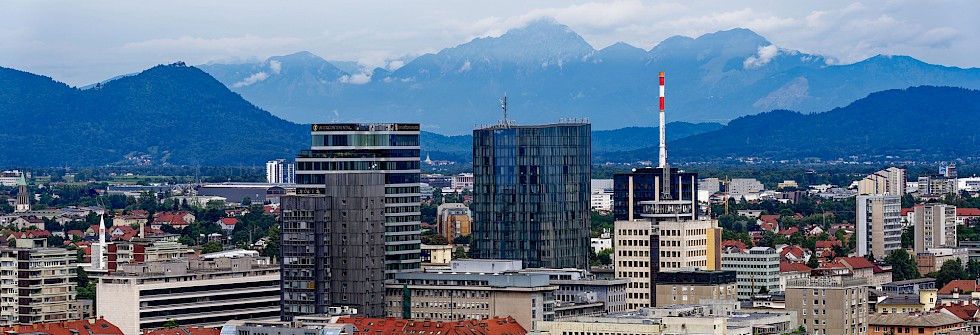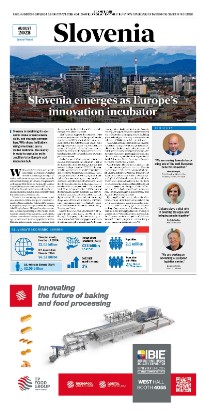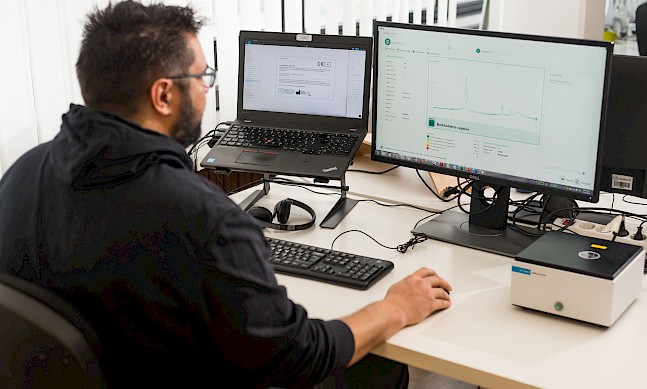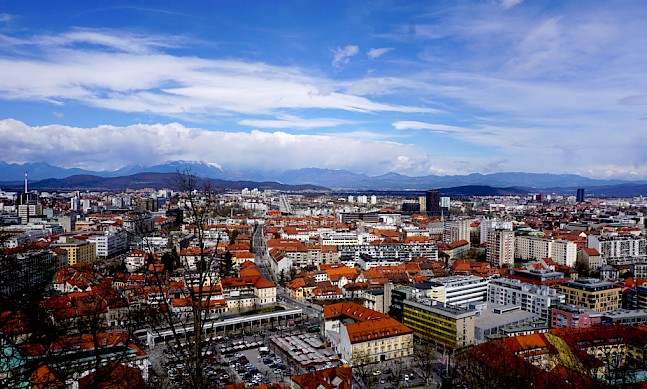Slovenia is redefining its economic model around science, skills, and strategic partnerships. With strong institutions, rising investment, and a skilled workforce, the country is ready to capitalize on its ambition to be Europe’s next innovation hub.
With a population of just over two million people, Slovenia is leveraging its scientific heritage, strategic location, and innovation agenda to shape a growthled national strategy. In advance of September’s 20th annual Bled Strategic Forum, the country is spotlighting an economy that is shifting to one led by intellectual capital, research excellence, and international engagement, bolstered by deep European and transatlantic ties.
“Slovenia is a community that invests in science, education, culture, and sport,” President Nataša Pirc Musar said in her Statehood Day address, highlighting the pillars upon which the country is building its future. This guiding vision articulates Slovenia’s positioning as a knowledge-driven economy defined by its advanced capabilities in science, research and development, and technology. Around 4% of Slovenia’s population holds a PhD, the highest rate in Europe, reflecting both the nation’s highly skilled workforce and the strength of its wider ecosystem.
That backbone supports the country’s robust economic performance. The European Commission forecasts GDP growth of 2% in 2025, outpacing that of the wider European Union, while per-capita GDP now stands at 91% of the bloc’s average. Rising levels of foreign investment are backed by strong credit ratings from international agencies, with advanced sectors attracting particular interest.
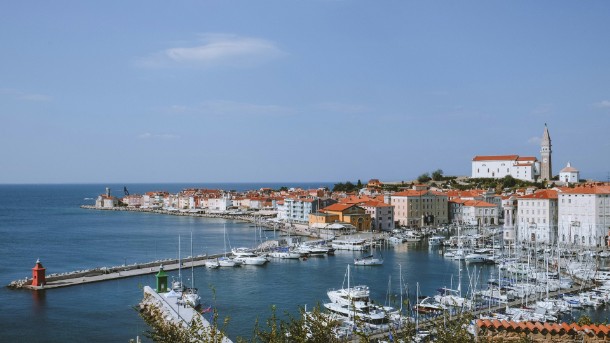
Anchoring much of this progress is Slovenia’s research and education infrastructure, such as the Jožef Stefan Institute, the country’s largest research facility and home to UNESCO’s International Research Centre for Artificial Intelligence. The Secondary Technical and Vocational School Trbovlje, meanwhile, provides programs in disciplines from metalworking to computer science, working closely with regional businesses to ensure that the economic transformation taking place is both broad-based and sustainable. On a national level, Slovenia’s participation in EU green and digital transformation programs has seen investment channeled into renewable energy and digitalization. “We always think about making things more efficient and sustainable, with lower energy and material use,” says Matevž Frangež, State Secretary at the Ministry of the Economy, Tourism, and Sport.
Beyond the EU, Slovenia prioritizes its relationship with the United States. The U.S.-Slovenia Strategic Dialogues, established in 2020, provide a forum for bilateral engagement in areas of national and global importance. At the 2024 meeting, Slovenia signed the Artemis Accords, creating new opportunities for domestic research and collaboration in emerging sectors, including space technologies. The 2025 conference is due to be held in Washington, D.C. later this year.
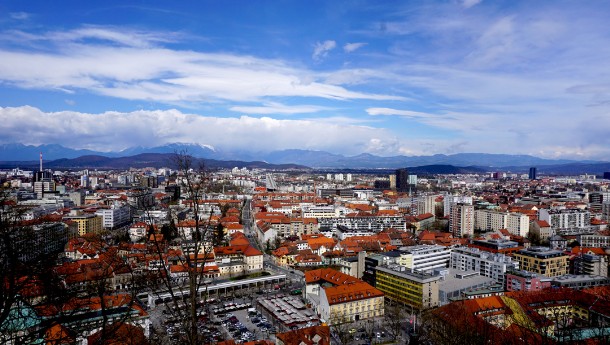
With a similar focus on international challenges, the Bled Strategic Forum encapsulates Slovenia’s national ethos, emphasizing the power of multilateralism and diverse perspectives to offer strategic solutions to pressing global problems. The 2025 edition, scheduled for September, is titled ‘A Runaway World’, focusing on Europe’s role in the evolving global order.
With European identity a key element of the national character, this year also sees Slovenia play host to one of the continent’s most high-profile cultural initiatives. Under the theme of ‘GO! Borderless’, Nova Gorica is one of two European Capitals of Culture for 2025. Selected for its cross-border links and historical ties, the town symbolizes a commitment to shared identity and cultural engagement. “European Capital of Culture Nova Gorica looks beyond borders, aiming to heal, envision, and inspire a shared future,” says Minister of Culture Asta Vrečko.

Ljubljana, Slovenia’s capital, reflects the wider national vision. Under Mayor Zoran Janković, the city is pursuing a 2045 vision grounded in inclusivity and livability. Already, 75% of the capital is made up of green spaces, with 20 hectares of pedestrian zones, making Ljubljana one of Europe’s greenest cities. “We are interested in investments that improve our citizens’ quality of life,” says Janković. “I want Ljubljana to continue being a clean, safe, green, and friendly city.”
Why invest in Slovenia?
For investors, Slovenia pairs EU stability with innovation capacity, strategic connectivity, and growing strength in emerging sectors.
Slovenia’s dynamic economy is marked by an openness to trade and investment. World Bank data shows that total foreign trade in 2024 was equal to 156% of GDP, while foreign direct investment, which has been rising steadily over the past decade, increased 3.6% to €28 billion last year, according to the Bank of Slovenia.
A longstanding member of the European Union, the nation is today leveraging its highly educated workforce, advanced research and innovation ecosystem, and strategic location to drive economic diversification. “Our national industrial strategy focuses on promising new sectors such as AI, biotechnology, and net-zero technology,” says Matevž Frangež, State Secretary at the Ministry of the Economy, Tourism, and Sport. “We must learn from the best and focus on innovative technologies.”
In this interview, Frangež outlines Slovenia’s economic ambitions, startup strategy, and the powerhouse sectors providing the foundations for growth.
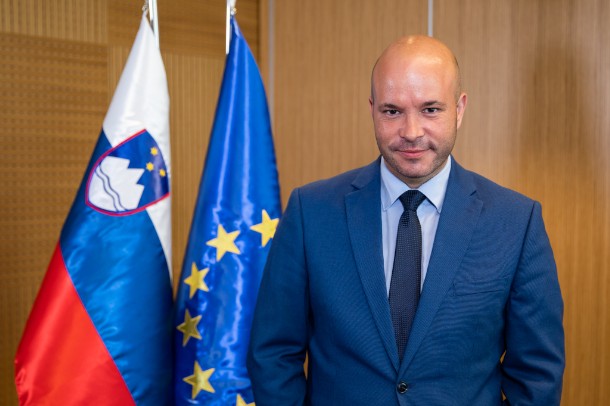
“Our ambition is clear: we want to evolve as the next European hub for innovation.”
Matevž Frangež, State Secretary, Ministry of the Economy, Tourism, and Sport
Tweet ThisQ: What is your vision for Slovenia’s economy?
We are leaders in the manufacture of precise and reliable products. That is why we are tightly integrated into the European value chains. However, Slovenia and most of Central-Eastern Europe control the least profitable part of the value chain. We are the seventh most robotized economy in the world and the 11th most complex economy in the world, rankings that show the capacity of our economy to produce high-tech knowledge and innovation-based products.
Our ambition is clear: we want to evolve as the next European hub for innovation of advanced and sustainable technologies. In both fields, we feel that we have high competences, a great innovation ecosystem, and excellent connections between research, science, industry, and startups.
Q: What is your strategy to nurture startups and attract global talent?
We see an emerging, vibrant, and dynamic ecosystem in Slovenian startups, and we are confident that our strategy, encompassing five key areas, will radically change our performance in this area.
The strategic initiatives include a specially designed corporate legal form for startups, ensuring ease of entry and exit for investors, a startup visa to attract global talent, and incentives for investing in venture capital funds and into startups. In addition, we want to ensure we leverage our supportive ecosystem of incubators and technology parks to achieve better results for Slovenian startups.
Q: Which focus sectors would you highlight to international investors?
We have been successful in pharma and biotechnology because of the presence of traditional pharmaceutical industries, national research institutes, and public regulators that created a robust environment to focus on biotechnology. We also have excellent startups and scale-ups in the field. In energy, Europe’s focus is to lower critical dependencies in materials, energy, and modern technologies. For example, 96% of our needs for solar capacities are imported from China. Where Slovenia can excel is in developing new net-zero clean technologies. There are obvious signs that Slovenians are particularly good at innovating such technologies.
In automotive, there is not one European car made without Slovenian components, and there are interesting startups in this field, such as those developing in-wheel motors. In addition, Slovenia is a logistical hub for Central and Eastern Europe, which opens doors to European markets with 450 million people and 29 million European businesses.
The strategic move for the Ministry is to focus on new products and technologies that are the result of Slovenian knowledge, innovation, and design. We want more Slovenian brands to be known across the world because of these Slovenian characteristics.
